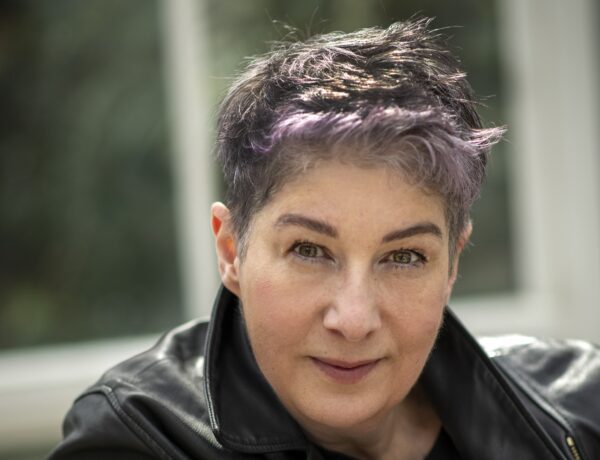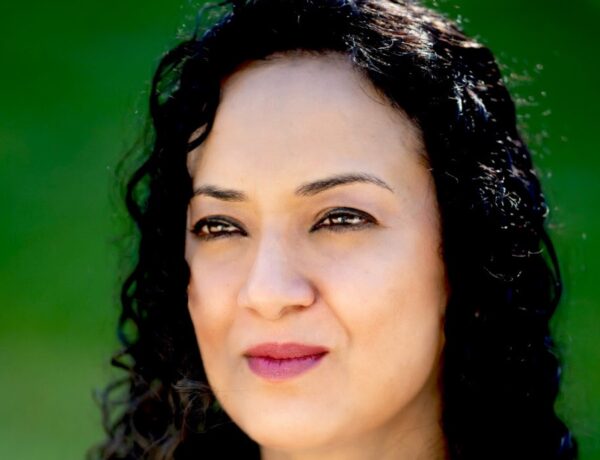Clover Hope is a Brooklyn-based writer, producer, and creative consultant with over 15 years of experience in journalism, focusing on music and culture.
She has written for publications such as Vibe, Elle, Billboard, Wired, Esquire, The New York Times, Vogue, and more. Clover has also worked for clients such as Nike, YouTube, and Spotify, and held staff writing and editing positions at Billboard, XXL, Vibe, and Jezebel.com.
Currently, she is a freelance writer, Contributing Editor for Pitchfork, and an adjunct professor at New York University. Her first book, The Motherlode: 100+ Women Who Made Hip-Hop, is a comprehensive history of women rappers available in bookstores via Abrams Books.
Each week, we publish a new daily writing routine from a famous author. Subscribe to our newsletter so you don’t miss out!
Hi Clover! We’re delighted to have you as a guest on Famous Writing Routines. You have a wide range of writing experience, from journalism to creative consulting. How has your background in journalism influenced your creative process?
It helps with something as basic as knowing how to be succinct. But journalism has mostly prepared me to have an eye for research and detail. Working on the upcoming Hulu RapCaviar series, for example, involved a lot of researching, story pitching, and writing episode outlines. The TV space is also collaborative, which is something I love and missed from my days as a magazine editor.
Your first book, The Motherlode: 100+ Women Who Made Hip-Hop, delves into the history of women in hip-hop. Can you talk about your research process for the book and what you found most interesting or surprising during that time?
The women I spoke to were extremely charitable with their time. I was surprised (though I shouldn’t have been) at how grateful they were that someone wanted to tell their stories. I’m glad I wrote the book and cannot believe I did it and don’t know if I want to do it again lol. It was over two and a half years of extensive reporting, interviewing, writing, and editing. It felt like I was using every writing instinct I had.
As a freelance writer and Contributing Editor for Pitchfork, can you discuss how you balance writing for different audiences and publications?
From the outside, it might seem like “how do you have the time?” But I don’t have a full-time job, so I structure my days depending on the slate of assignments and projects at the moment, and I have a pretty satisfying amount of free time. Some weeks are heavier than others. Some days, I’m watching a new season of Love Is Blind all day and just chilling. When I have a deadline, I spend days at a coffee shop, or I may have three nights in a row of late-night writing.
Do you struggle to stay focused while writing? You’re not alone! That’s why Famous Writing Routines recommends Freedom – the ultimate app and website blocker for Mac, Windows, Android, iOS, and Chrome. With over 2.5 million users, Freedom helps writers stay on task and avoid distractions. Get started for free today and reclaim your productivity!
Can you tell us about your writing routine? How do you structure your days to make time for writing? Maybe take us through a recent writing day as an example.
Even as a creature of habit, I don’t really have a strict writing routine. On a recent writing day, I went to a coffee shop near where I live in Bed-Stuy. I had most of my draft complete, so I worked on rewriting. I might spend all day doing nothing or thinking about the story and then knock out a big chunk in the midnight hours.
Can you talk about any specific tools or techniques you use to help with your writing routine, such as writing apps or brainstorming methods?
Scrivener is a lifesaver for organizing. I use it for every long-form piece or project. Evernote and Stickies for note-taking. I’ve also recently developed a Diet Coke and coffee habit (I have a Bialetti espresso maker). And I believe in naps.
How do you handle writer’s block and maintain creativity in your writing?
I tend to stop writing at that point and procrastinate. Lots of reading and questioning why I choose to write. I try to do more research because being stuck means there might be missing a link.
What does your writing workspace look like?
I have a home office, but I don’t have a dedicated writing space where I work regularly. Mostly it’s the couch. Sometimes on my phone. I like going to coffee shops. I find it harder to write at home during the day, so most of my at-home work involves scheduling, meetings, emails, and research. I do my best writing between midnight and 3 a.m. when agony sets in. Sometimes I’ll write from 2 to 5 a.m. and take the next day to sleep.
Affiliate disclaimer: Some links on this website are affiliate links. We may earn a small commission if you make a purchase through these links, but only promote products we truly believe in. We disclose affiliate links and give honest reviews.



No Comments